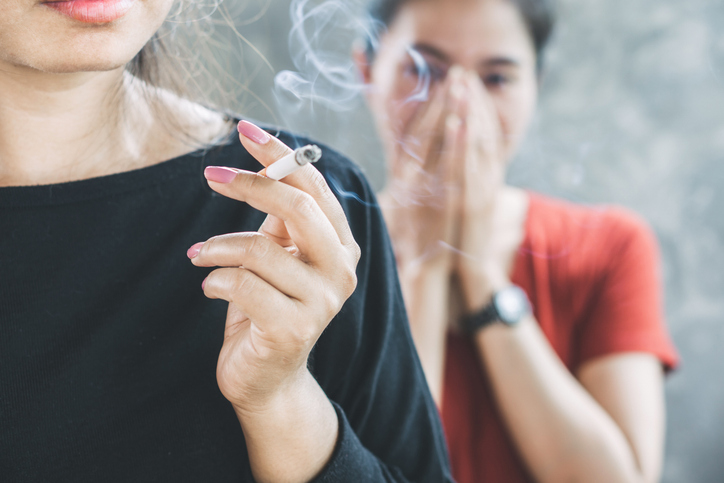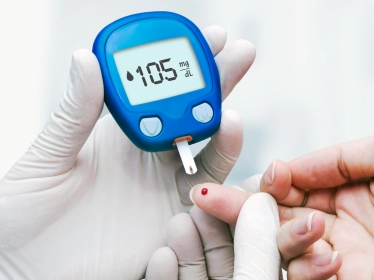
The statistics are damning.
Tobacco kills up to half of its users, and more than eight million people die each year from tobacco-related illnesses — including 1.3 million non-smokers who were exposed to second-hand smoke. In Singapore alone, six people die every day from smoking-related diseases such as cancer, heart disease, stroke, and chronic lung conditions.
Yet despite these numbers, certain lines still get thrown around far too often:
“I only smoke or vape when I’m out with friends.”
“I don’t smoke, I choose vaping — and it can’t be that bad.”
If that sounds familiar — whether you’ve said it yourself or heard it from someone else — it’s time to take a closer look. Because whether it’s vaping or lighting up the occasional cigarette, these so-called “casual” habits still carry very real health risks.
As we mark World No Tobacco Day on 31st May, it’s a timely reminder: even occasional smoking or social vaping can affect your body, your mind, and the people around you.
One Puff Is All It Takes
Not a regular smoker or vaper? That doesn’t mean you’re in the clear.
Cigarette smoke contains benzo[a]pyrene, a potent carcinogen that can damage the p53 tumour suppressor gene — the gene responsible for preventing abnormal cell growth. When this gene is impaired, even a single lung cell can begin mutating, increasing the risk of lung cancer. The damage doesn’t take years to build up — it can begin with just one cigarette.
Vaping is often seen as a safer alternative, but that assumption doesn’t hold up. Vape aerosols still contain nicotine, formaldehyde, and ultrafine particles that irritate the lungs and blood vessels. Studies have shown that vaping can trigger airway inflammation, reduce lung function, and raise heart rate and blood pressure — effects that begin even in light or occasional users. In Singapore, many treat vaping as a “lighter” or “social” option, but medically, the risks are well documented — and should not be dismissed.
Whether it’s a cigarette or a vape, harm doesn’t wait for a habit to form. It begins from the very first puff.
From Occasional Puff to Daily Cravings
Social smokers and casual vapers often believe they’re in control. “I only do it when I’m out,” or “I can stop anytime” are common refrains. But science tells a different story.
Nicotine is highly addictive, even when consumed in small amounts. Each puff creates a brief sense of relief or stimulation — something your brain quickly learns to crave again. Over time, these triggers become routines, and routines become habits.
Even if you’re not smoking or vaping daily, your body might still respond with withdrawal symptoms when nicotine levels drop. These can include:
• Irritability or restlessness
• Difficulty focusing
• Mood swings or anxiety
• Low energy or mild depression
• Strong, sudden cravings — especially in familiar settings like social gatherings or after meals
These effects can catch people off guard. Someone who only smokes or vapes once every few days might still find themselves thinking about it more often than they would like. And while they might not reach for a cigarette or vape device every time, the mental loop of craving and temporary relief becomes harder to break.
With vaping, this cycle can become even more enticing. The use of sweet, fruity, and dessert-like flavours makes vaping feel less harsh and more habitual — especially among younger users. It not only masks the harshness of nicotine but also reinforces repeated use through sensory appeal.
You don’t need to finish a device a week or smoke a pack a day to build dependence. For many, it starts with “just one puff” — and quietly builds from there.

It Doesn’t Just Affect You
While smoking or vaping might be of your own volition, it can still affect the people around you.
This is especially true in enclosed or shared environments, where even occasional use can expose others to what you exhale. Whether at home, in the car, or in other indoor spaces, those nearby will end up breathing in substances that trigger symptoms in people with allergies or respiratory conditions. Children are particularly sensitive and might experience coughing or breathing issues over time.
This concern applies to vaping as well. Vaping is often dismissed as harmless to others, but that assumption is not backed by evidence. The vapour might smell nicer, but it still carries fine particles and chemical residues that can hang in the air. In poorly ventilated areas, even brief exposure can be enough to cause discomfort for someone nearby.
These effects are easy to overlook, but they build up. The clearest way to protect others is to stop smoking or vaping altogether.
This World No Tobacco Day, Make the Shift for Good
If you have been thinking about quitting, now is a meaningful time to take that first step. World No Tobacco Day is not just a reminder of the harm. It is also a chance to take control of your health and reduce the risks for those around you. Whether you smoke or vape, occasionally or often, cutting back or quitting completely can make a difference.
In Singapore, it’s also important to note that vaping is illegal. The use, sale, and possession of vape devices are prohibited by law. Quitting is not just a health decision. It also ensures that you are acting within legal boundaries and reducing harm to those around you.
You can speak to our doctors at Healthway Medical to learn more about smoking and vaping cessation programmes. With our clinics located across Singapore, support is never far away when you are ready to take that step.





